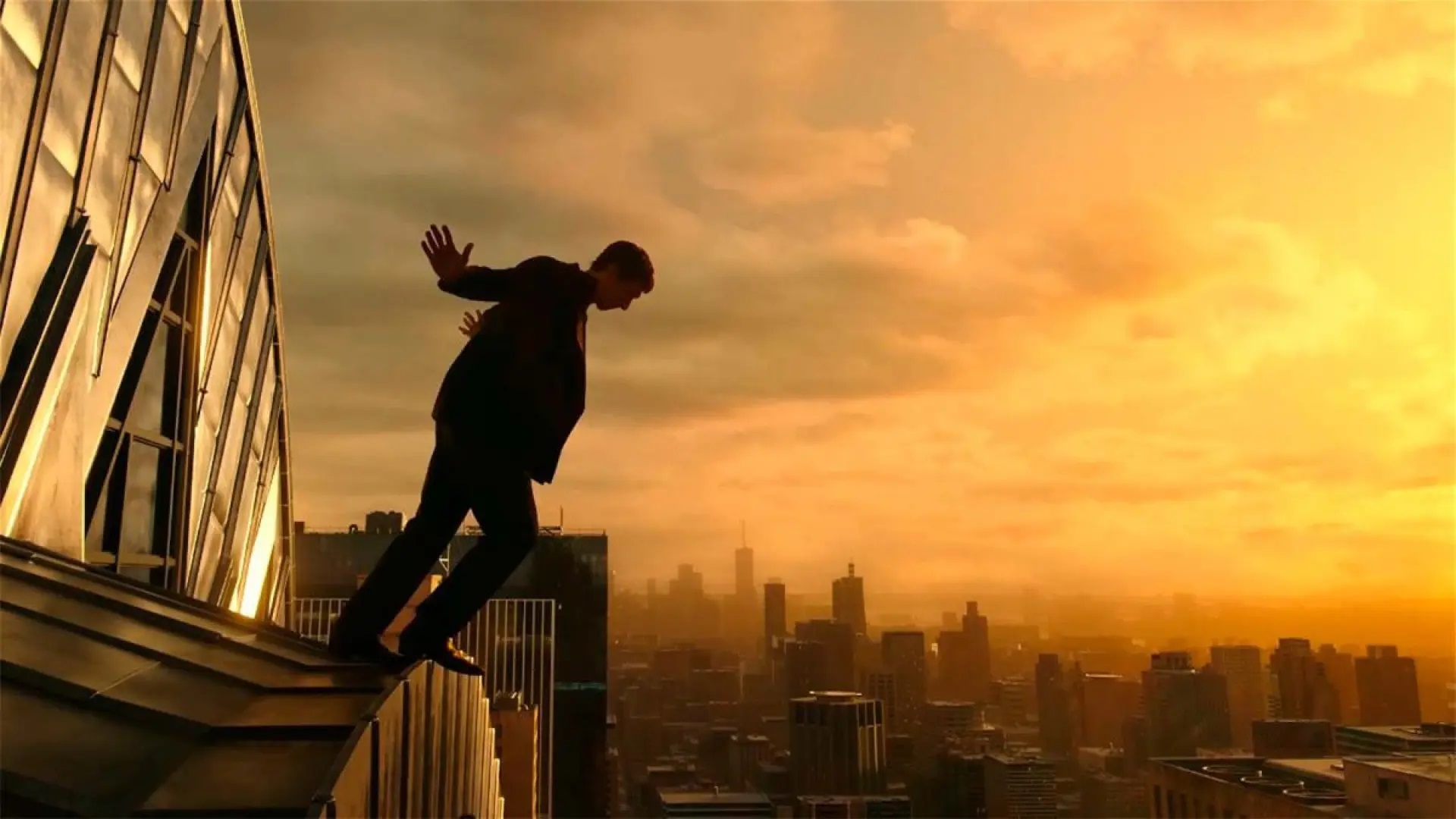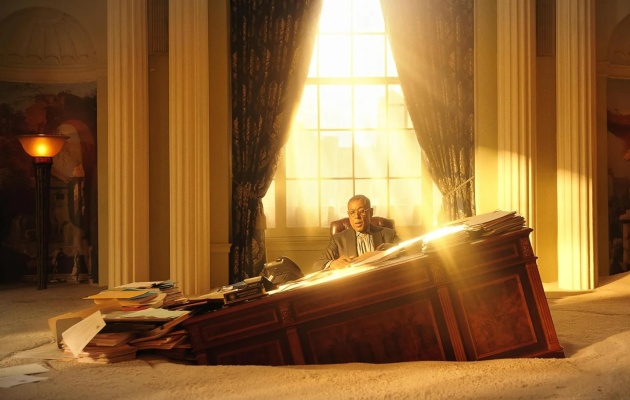It is curious how cinema dialogues with time. Francis Ford Coppola’s film is about the future, yes, but it has its roots in a work written more than two thousand years ago.
 A scene of 'Megalopolis' (2024), by Francis Ford Coppola.
A scene of 'Megalopolis' (2024), by Francis Ford Coppola.
Megalopolis, Francis Ford Coppola’s new work is a dream project, ambitious. An imagined city, reminiscent of Rome in its splendour, but also in its fall. A futuristic fresco that nevertheless looks back to the past. Way back, to a text that many will have forgotten, but which still beats in the heart of the filmmaker: Bellum Catilinae.
It is curious how cinema dialogues with time. Megalopolis is a film about the future, yes, but it has its roots in a work written more than two thousand years ago. Sallust tells the story of a man, Lucius Sergius Catiline, who wanted to subvert the order of the Roman Republic. A man driven by ambition, by the desire for power. A Rome that, as so often, seems both close and distant at the same time.
Sallust was writing at a time of crisis. The republic was no longer what it had been. Rome, as in Megalopolis, was no longer that shining city of marbles and statues. It had been filled with shadows, corruption. The ancient virtues were dying. Men, according to Sallust, were no longer capable of sacrificing themselves for the common good. Everyone was out for his own. And Catiline saw his chance, rallied the discontented, the outcasts, those who had nothing to lose. It was a conspiracy to bring down Rome from within.

[photo_footer] A scene of Megalopolis (2024), by Francis Ford Coppola. [/photo_footer] Francis Ford Coppola has captured that atmosphere. In Megalopolis, the city of the future reflects, at its core, a very old struggle. A battle for the soul of a nation that has lost its way. What Sallust did in his time, Coppola brings to ours. Because in the end, Rome is always crumbling. Today, too.
Catiline is not just a man, he is an idea. He is the representation of all-devouring selfishness, unbridled ambition. Sallust describes him with bitterness, he sees him as a brave but misguided man. A man who could have done great things, but who chose the easier path. Instead of building, he chose to destroy.
In Sallust’s work, Catiline is a warning. Rome was tottering because it had ceased to be virtuous, it had forgotten what made it great. In Coppola’s film, Megalopolis also falters. The characters who inhabit the futuristic city, like those in Sallust’s Rome, are caught between the desire to change things and the fear of losing what little they have left. Catiline lives in each of them.
And this is where the viewer of Megalopolis has to look back to history. To that ancient Rome which, in some way, is still relevant today. Because what Sallust tells us in his work is not just a political story, it is a human story. Ambition, power, corruption? These are themes that are still relevant today. Sallust’s Rome is not so different from ours.
At bottom, the message is the same. Without virtue, any society is doomed to fall. What Sallust was trying to remind his contemporaries, Coppola reminds us of. If we forget what sustains us, if we abandon the principles that give us stability, we will end up like Rome. Or like Megalopolis.
When Sallust wrote this work, the Gospel of Jesus Christ had not yet been proclaimed. But the Word of God, what we know as the Old Testament, was already present. Rome, in its splendour, was blind to that truth. And perhaps therein lies one of the keys to understanding why it fell. Not for lack of laws or armies, but for lack of a moral compass, a direction upwards.

[photo_footer] A scene of Megalopolis (2024), by Francis Ford Coppola. [/photo_footer] Coppola’s film, though set in the distant future, also has this truth. The city of tomorrow, however advanced it may be, cannot be sustained without that light that gives meaning to everything. Without a vision beyond power or wealth.
The foundations crack when the eternal is left out of the equation. And in that sense, The Catilinarian conspiracy is a testament to the old world that had not yet known the redemption of Christ.
Coppola is a nostalgic. His films always take us to that lost corner of the soul, where he laments what might have been. In Megalopolis, that nostalgia for lost greatness is present in every shot and every dialogue. And that connects it, inevitably, with the work of Sallust, as an elegy, a farewell to a Rome that will never return. A lament for a republic that had vanished in the hands of men like Catiline, who believed they could shape the world as they pleased.
To understand Megalopolis, you have to know Rome. Not the Rome of the tourists, the Rome of the monuments, but the Rome of Sallust. The Rome that was in crisis, that feared for its future. And which, like us today, was looking for a way out of the darkness.
Coppola’s work is not just a science fiction film. It is a reflection on power, on the fall of civilisations, and on how the past continues to influence the future. Sallust left us a warning: without virtue, without morality, without God, any society is doomed. Rome learned this too late. Perhaps we, if we pay attention, still have time.
[analysis]
[title]One more year[/title]
[photo][/photo]
[text]At Evangelical Focus, we have a sustainability challenge ahead. We invite you to join those across Europe and beyond who are committed with our mission. Together, we will ensure the continuity of Evangelical Focus and Protestante Digital (Spanish) in 2024.
Learn all about our #OneMoreYearEF campaign here (English).
[/text][/analysis]

Las opiniones vertidas por nuestros colaboradores se realizan a nivel personal, pudiendo coincidir o no con la postura de la dirección de Protestante Digital.
Si quieres comentar o